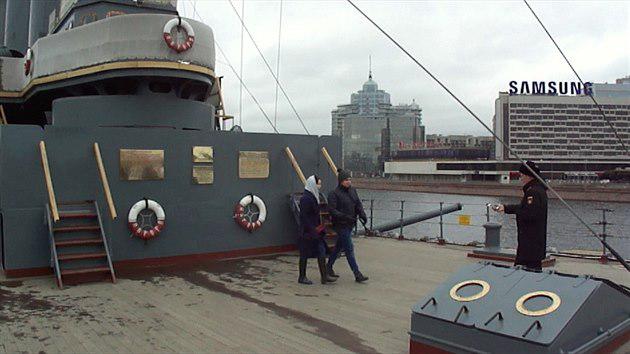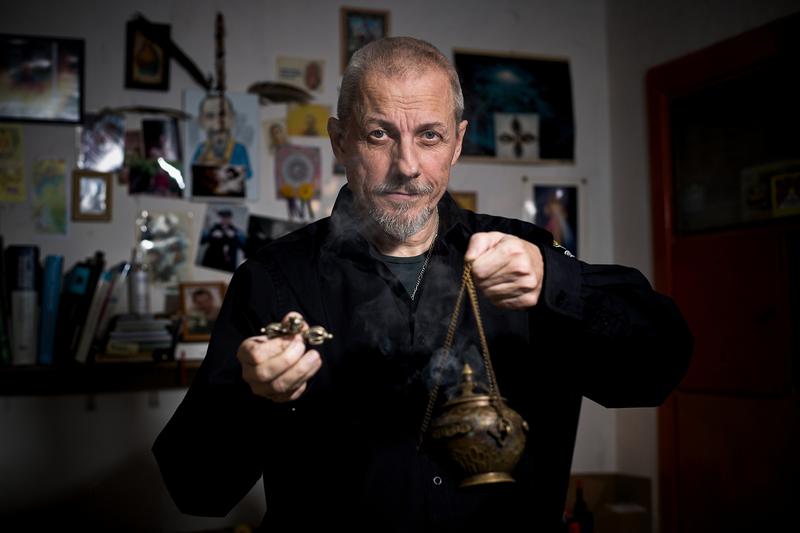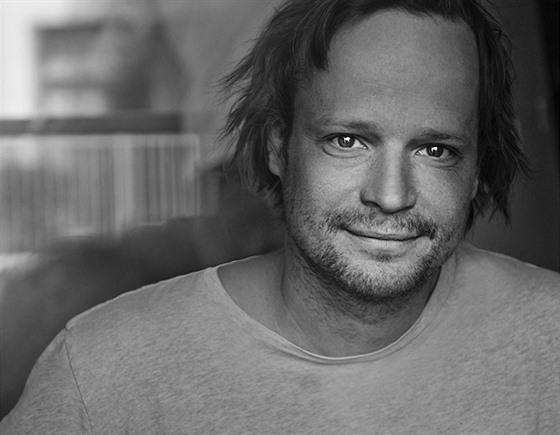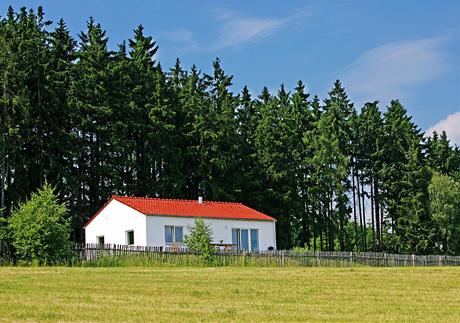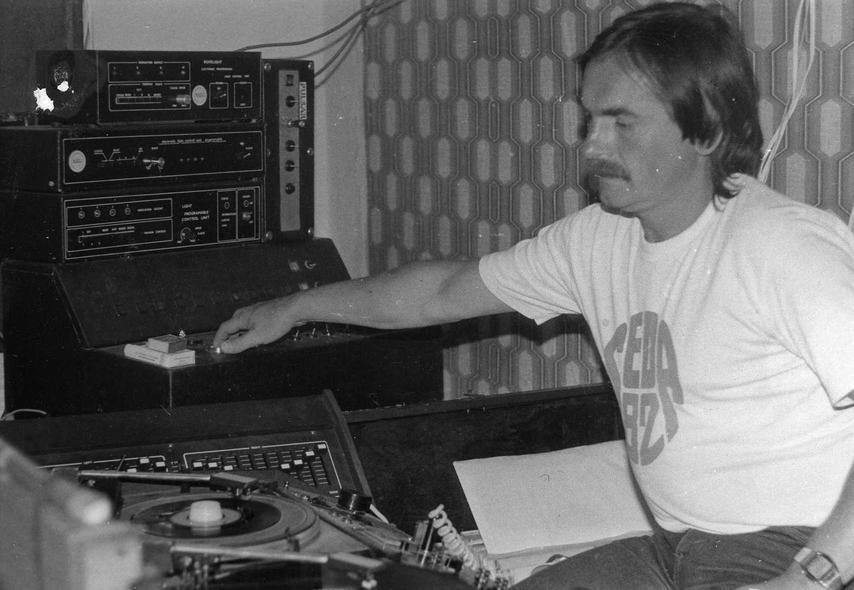
REVIEW: Hřebejk's Family Friend started the Horticulture trilogy rather awkwardly
One important point cannot be overlooked - the gardening trilogy is presented as a prequel to the once very famous and popular Pelíškés. This in itself makes a tempting impression, but it should also be remembered that we will not meet anyone from the comedy released in 1999 in the advanced stories, and therefore this message can also be considered part of a large-scale marketing campaign.
Rivals in love who never fought - Jiří and Jindřich | photo: CinemArt
An unspecified time in 1939 takes us to Miloš Pecka's horticulture in Jaroměř, where men meet, whose expressions should indicate determined resistance fighters. But the gardener Pecka evokes completely different ideas, being fully in love not so much with his own child as with cacti and succulents, including the legacy of the great traveler Albert Vojtěch Frič. This scene is supposed to justify the collective title of the entire trilogy, since the vast majority takes place in the environment in which the three sisters meet (and Anton Pavlovich Chekhov is not responsible for them). The most dramatic period is experienced by Vilma, who just before the birth of her daughter is arrested by the Gestapo of her husband Jindřich, the same fate befalls Ota, the husband of the second of Emma's sisters. Jindřich's friend, doctor Jiří, not only manages to protect Vilma from reprisals by the Gestapo, but for the next six years he tries his best to help the family. While there is some news about Oto, Jindřich remains silent and eventually the family receives the infamous Totenschein, announcing Jindřich's death. This sad event paradoxically opens up possibilities for the development of the relationship between Vilma and Jiří, which is also supported by daughter Danuška. But shortly after the end of the war, the surviving Jindřich appears...
source: CinemArt
The concept of the film, which we could call a chamber drama, consistently avoids the dramatic events of World War II. world wars, which could add a spark to the story, instead we jump from the beginning in 1939 to the end of 1944 (another reference to the time frame the creators forgave) and rather focus on the inner life of three women with that "family friend", who is not only able to obtain the unobtainable, but also has no trouble with the authorities at all, although two of the three sisters should be under constant surveillance by the Gestapo. In the absence of moving events of the Böhmen und Mähren protectorate, we experience scenes that are mildly humorous (the routine disposal of an illegally kept goose can still be heard), conversational (dialogues and memories) and family, which is the case of a long-winded Christmas special. This, combined with the music of Voskovec and Werich (one of the periodicals of the period presents the entire film) and the moody, darkened atmosphere, is supposed to evoke an oppressive feeling of war, but it rather seems like a black watch in the period of the First Republic. They say that sometimes the suspected evil is worse than the present one, but even the hidden danger doesn't work here. We will also avoid a dramatic liberation, suddenly there are lots of Soviet soldiers all around and relative calm. Everything takes place in a long-winded calm, even the arrests seem rather decent, despite the reputation of the Gestapo as such. The only deviation can thus appear to be a fictitious birth (without an explanation of how the suddenly ruptured amniotic fluid caused the doctor and the expectant mother to lie), which is not exactly a lot for a footage of over two hours.
Little Danuska does not understand many things, especially the return of her father photo: CinemArt
There has already been a warning that you cannot compare with Pelíšky, certainly don't do it in the case of Jindřich, that miraculous survivor buried both officially and symbolically in the family. Martin Finger presents him in a persistent, determined, but tired style, with which he seems only to calculate his war traumas. But she is definitely more believable than his partner Anna Geislerová, whose Vilma has no distinctive feature to attract attention. Even her budding love for Jiří, compounded by the fact that she is a widow, does not have any significant expression. It's a bit like those infamous Canadian jokes where one expects the other not to do something and then is unpleasantly surprised when it does. In this regard, Vilma probably does not want the sisters to be offended by her behavior after the death of her husband, and they, in turn, do not want to show that they know about the nascent relationship and perhaps even support it. Ondřej Sokol presents a perhaps too austere and economical style, but he definitely managed to cope with the role very decently - he certainly cannot be blamed for not being able to handle the dramatic part. David Novotný is charming in the role of a fanatical collector of cacti, and his scene, when he shows the children a flower that practically no one has seen in their life, is not as meaningless as it might seem, on the contrary, it is a brilliant example of how people who are passionate about something do not perceive their surroundings and are still surprised that they are not understood. The materially cynical Sabina Remundová, with a special focus on the family chandelier, deviates from the cold concept of positive characters, which of course gives her the opportunity to stand out, but the success of her character is rather due to her logical difference from other characters, who have a tendentious and unchanging character. And so we can only highlight the immediacy of children's speech, which is a sympathetic feature of some recent Czech films. In particular, Danushka's approach to the death of her father seems to have been inserted into the film from a completely different story.
Gardening: A Family Friend, like the other two installments of the trilogy, is based on true events. Therefore, it can be an excuse that some stationary parts of the film really happened, then the question is whether the de facto live broadcast with the family's Christmas gifts is attractive enough to devote almost half of the entire film to it. In addition, we find here many situations that have already been properly tested by time in cinematography; listing all plot clichés is pointless, mentioning wannabe dramatic or perhaps even bizarre passages, among which the stay of a horse with a Red Army soldier in the family villa will certainly be included, is also carrying firewood into the forest, perhaps only that even if a similar matter could have happened, in the film it does not even act as a hint or symbolism, rather it sounds strange and does not bring anything.
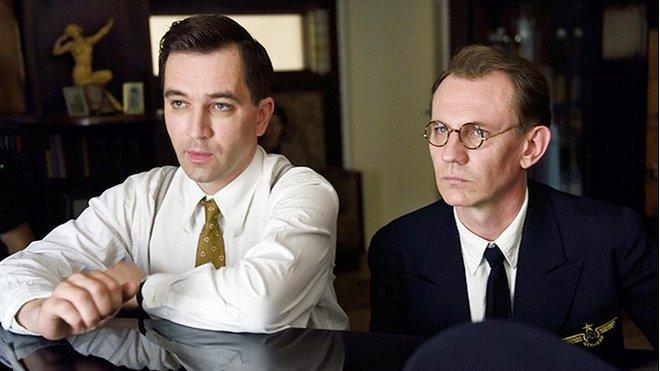
A demonstration of the skill of the filmmakers - this building is a complete backdrop, it grew in "Peck's" horticulture | photo: Robert Pavelka / INCORP images
From a technical point of view, the picture is an example of a high level, especially when we realize that Peck's gardening (which we get to enjoy really sparingly - you can find the pictures here) is actually a perfect backdrop. After all, according to various testimonies, producer Viktor Tauš provided a generous budget for Horticulture, certainly more than normal by Czech standards. From the point of view of the period costumes or the environment, practically nothing can be faulted, the fact that this quality was not fully transferred to the storyline is all the more sad. It is hard to say whether the film would benefit from being shortened to the usual time of around one hundred minutes, although it will sound harsh, there are quite a lot of places that could be cut.
Maybe things would look different if all the movies hit the theaters at the same time. The second part of Dezertér, for which there is a short trailer at the end of the film, can be much more action-packed and dramatic already considering the time in which it takes place, but the break of almost six months will not help much. So let's be surprised if other parts of Horticulture will move closer to the legendary Nests.
Overall rating: 60%
GARDENING: A FAMILY FRIEND
Starring: Ondřej Sokol (Jiří), Klára Melíšková (Bedřiška), Anna Geislerová (Vilma), Gabriela Míčová (Ela), Martin Finger (Jindřich), Jiří Macháček (Otto), David Novotný (Miloš Pecka), Lenka Krobotová (Emílie Pecková), Sabina Remundová (Marčí), Karel Dobrý (Karel), Samuel Budiman (Karlík), Josefína Marková (Daniela).
Screenplay: Petr JarchovskýCamera: Bartek CierlicaMusic: Petr OstrouchovDirector: Jan Hřebejk
CZ, 2017, family drama, 130 min., suitable for young peoplePremiere: April 27, 2017



